On Saturday, October 26, UC Berkeley hosted its first ever Harvest Day at the Gill Tract Community Farm in Albany. The event was planned by the Fresh Produce Security Team, which consists of the Berkeley Student Food Collective, the Students Organic Gardening Association, Gill Tract Community Farm, ASUC Senator Haley Broder’s Office and the UC Berkeley Food Pantry. Students, activists and educators alike gathered to work on the farm and learn about food justice and food awareness.
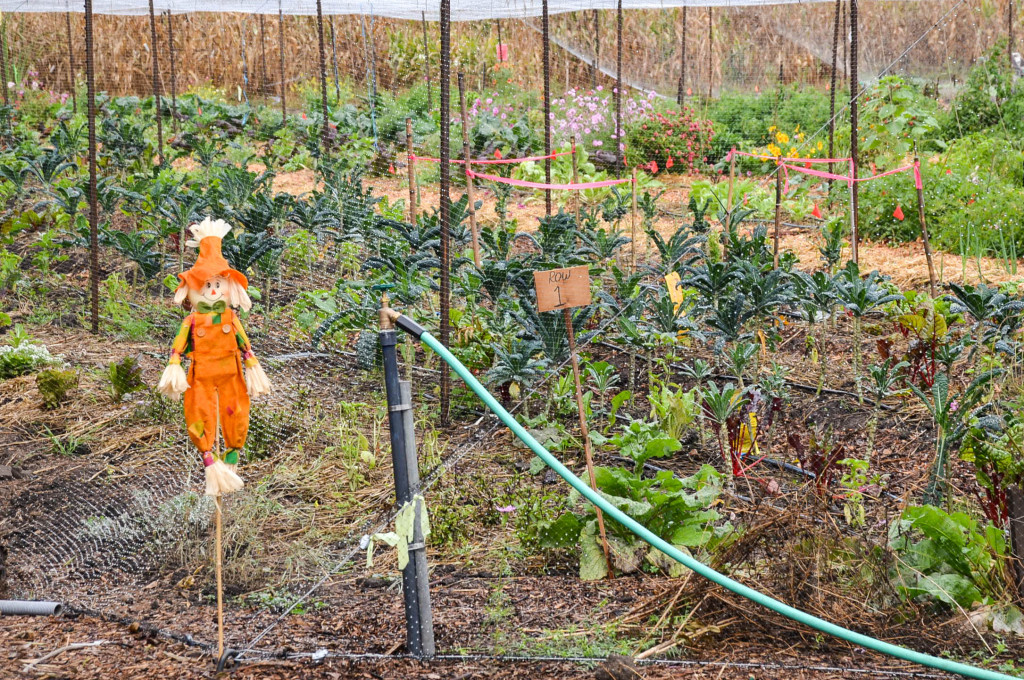
Photo courtesy of UC Berkeley Food Pantry
The day kicked off with an interactive workshop, exploring the different aspects of today’s food movement, such as food sovereignty, sustainable agriculture and community food security. Participants addressed challenges stemming from inequalities between and within these issues, discussed ways to unite the different sectors and learned how to continue working toward collective action in building a more equitable food system.
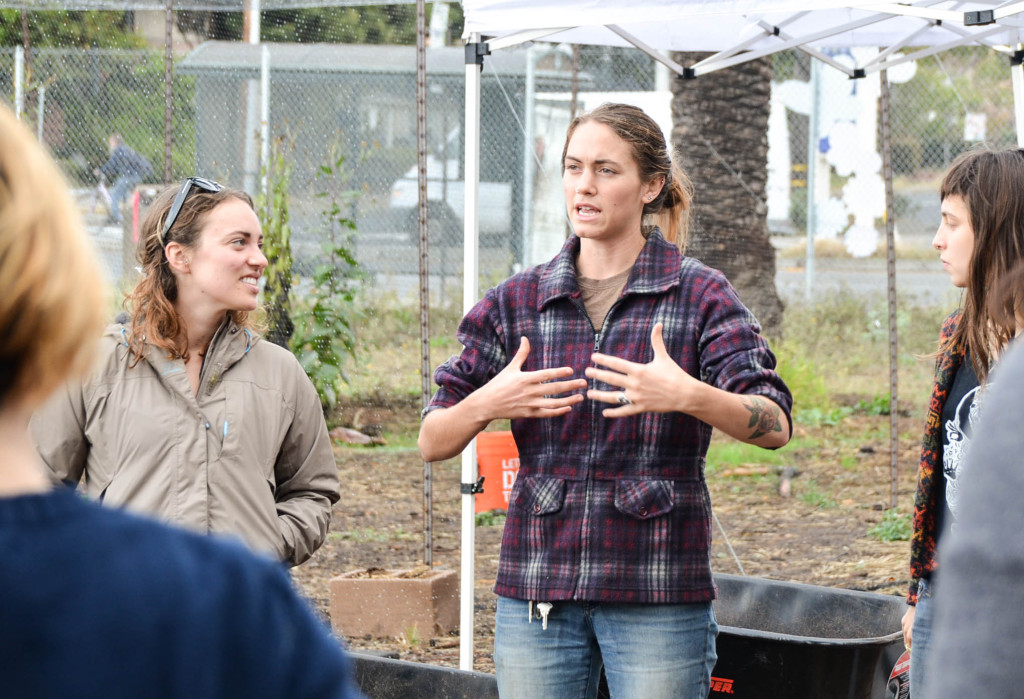
Photo courtesy of UC Berkeley Food Pantry
Participants also learned the rich history behind the Gill Tract land and Occupy the Farm–an ongoing social movement protesting the commercial development of the land.
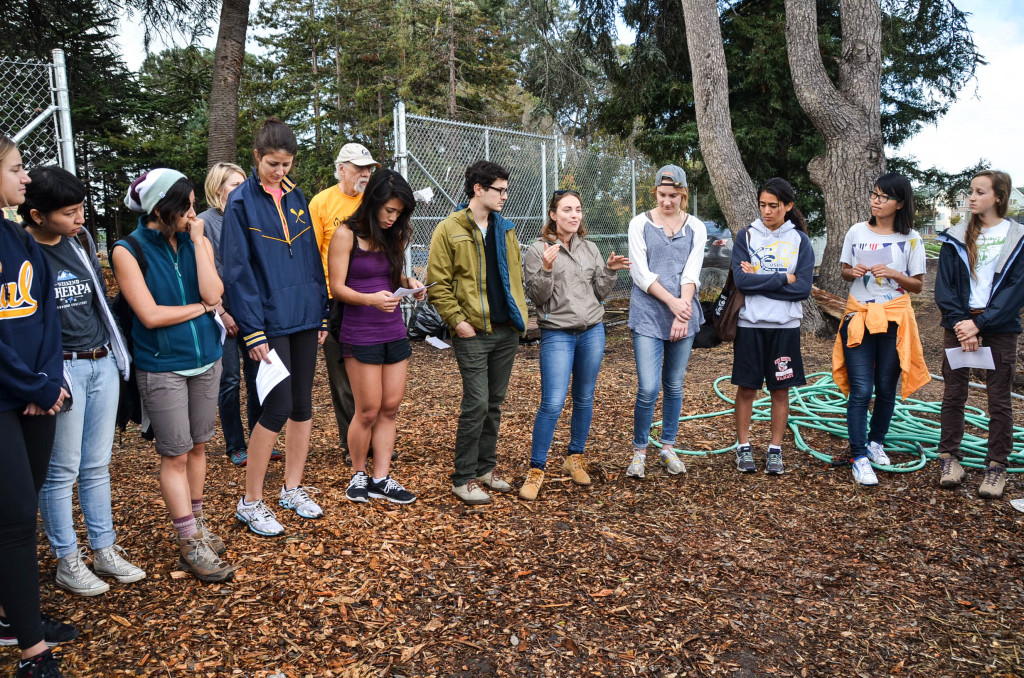
Photo courtesy of UC Berkeley Food Pantry
By mid-day, the clouds had parted for sun to shine through, just in time for farm work to begin! Volunteers helped with the transition of the fields by clearing tomato plants of the summer, pulling weeds and applying mulch to the soil.
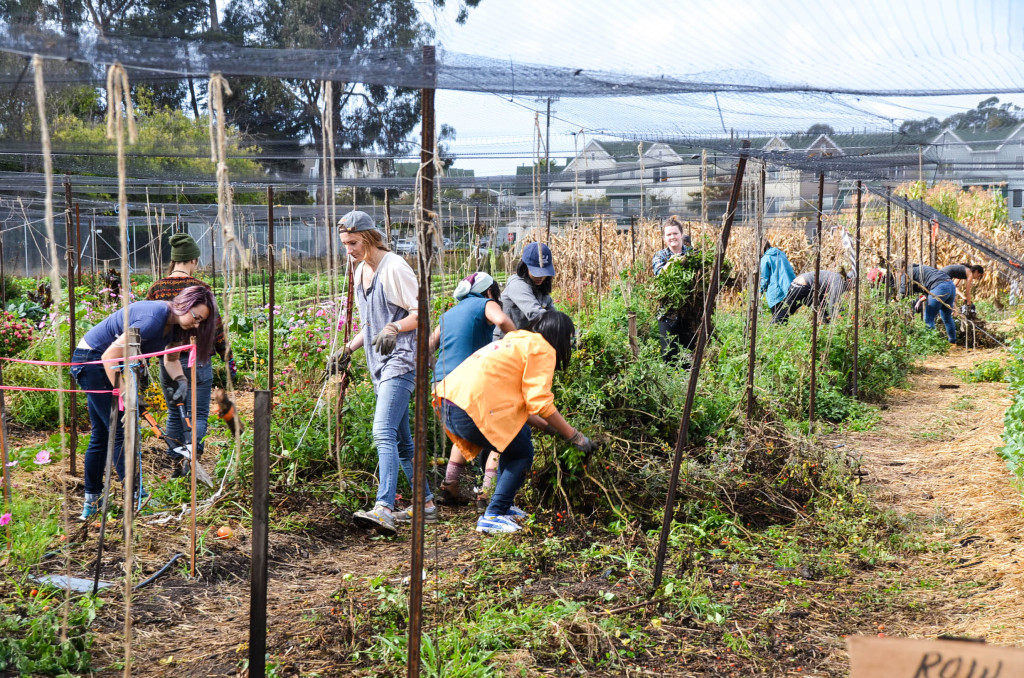
Photo courtesy of UC Berkeley Food Pantry
In addition, several volunteers harvested beautiful, bountiful crops of lettuce, basil, red Swiss chard, Chinese broccoli, kohlrabi and kabocha squash. The produce was then bagged and transported to the UC Berkeley Food Pantry, an organization that provides the student population with an emergency food supply.
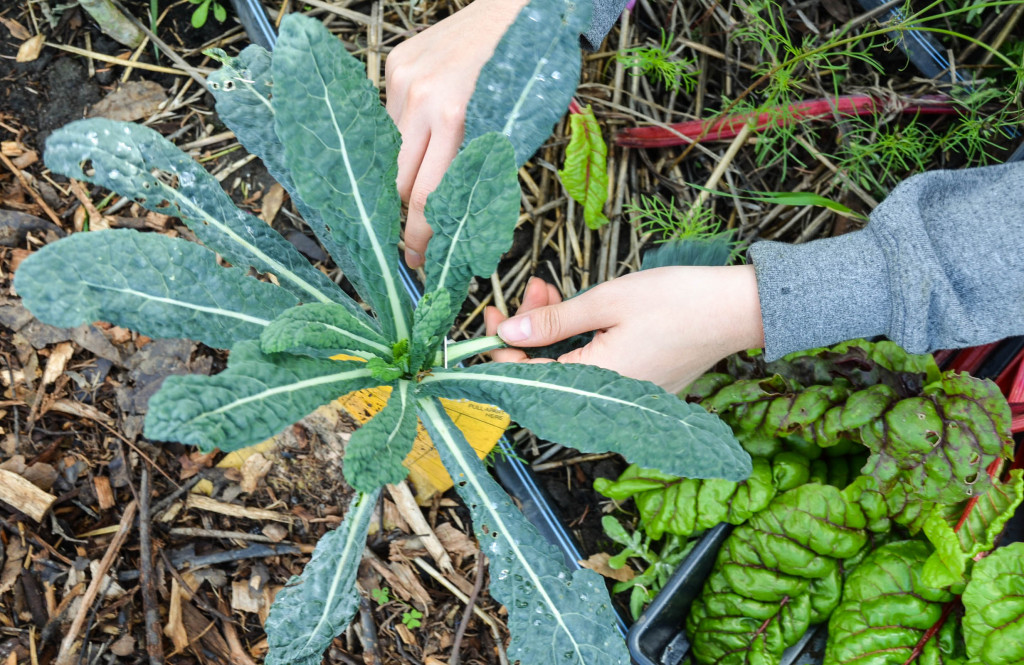
Photo courtesy of UC Berkeley Food Pantry
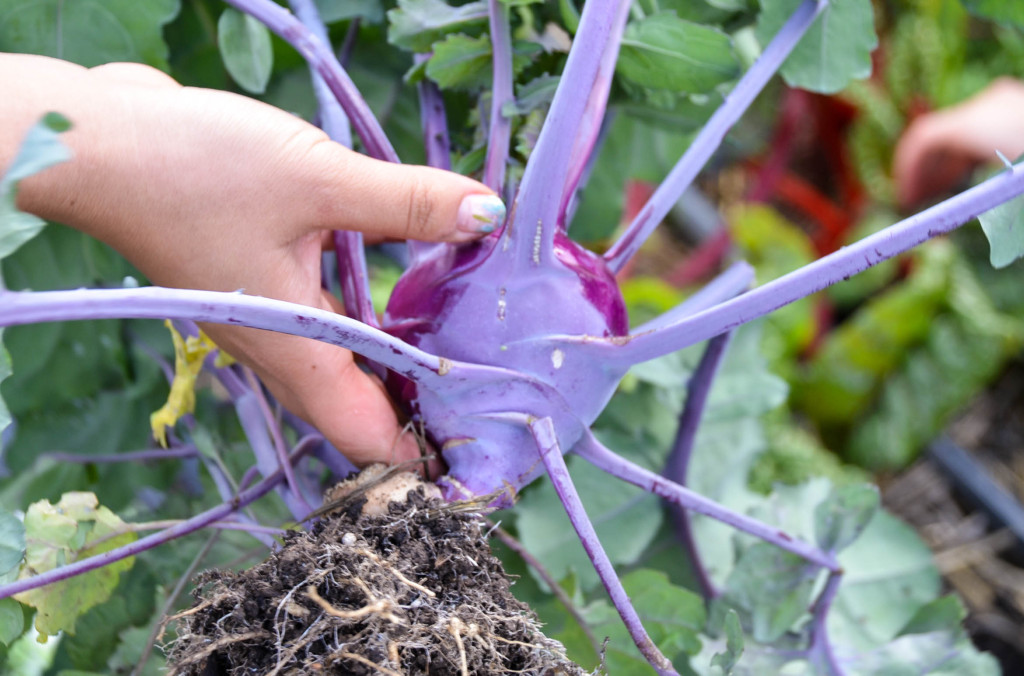
Photo courtesy of UC Berkeley Food Pantry
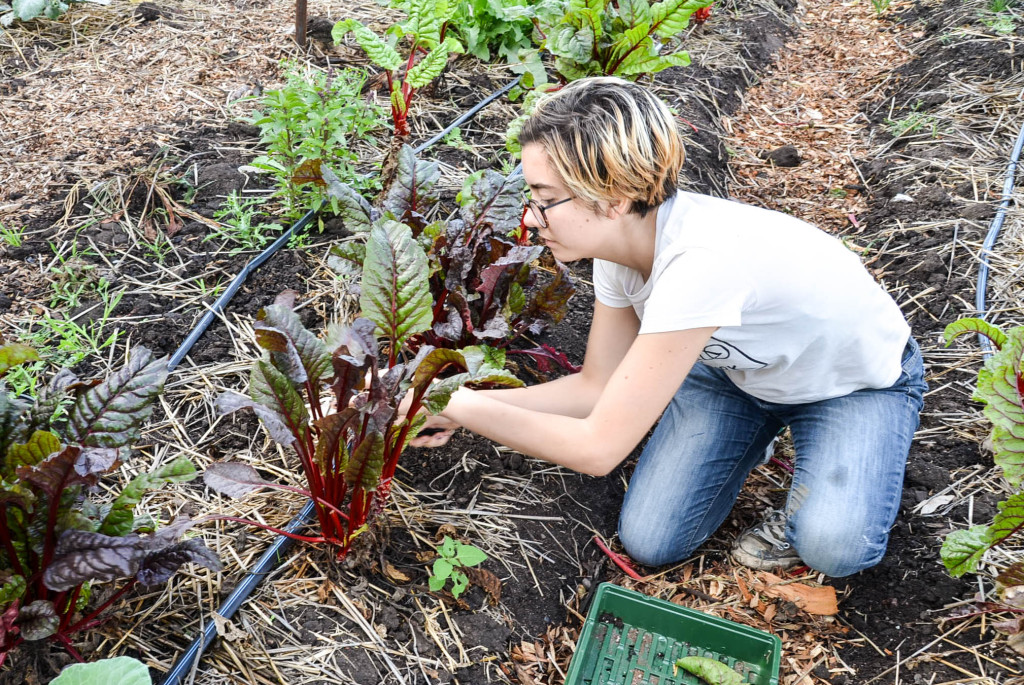
Photo courtesy of UC Berkeley Food Pantry
All in all, Harvest Day was a thought-provoking event that provided students with a hands-on experience of growing sustainable organic food and learning how to create positive change in the food movement. The local food movement, however, does not end with the completion of Harvest Day. Members of the community (including all UC Berkeley students) are always welcome to take home their harvested produce in exchange for volunteering at the farm.
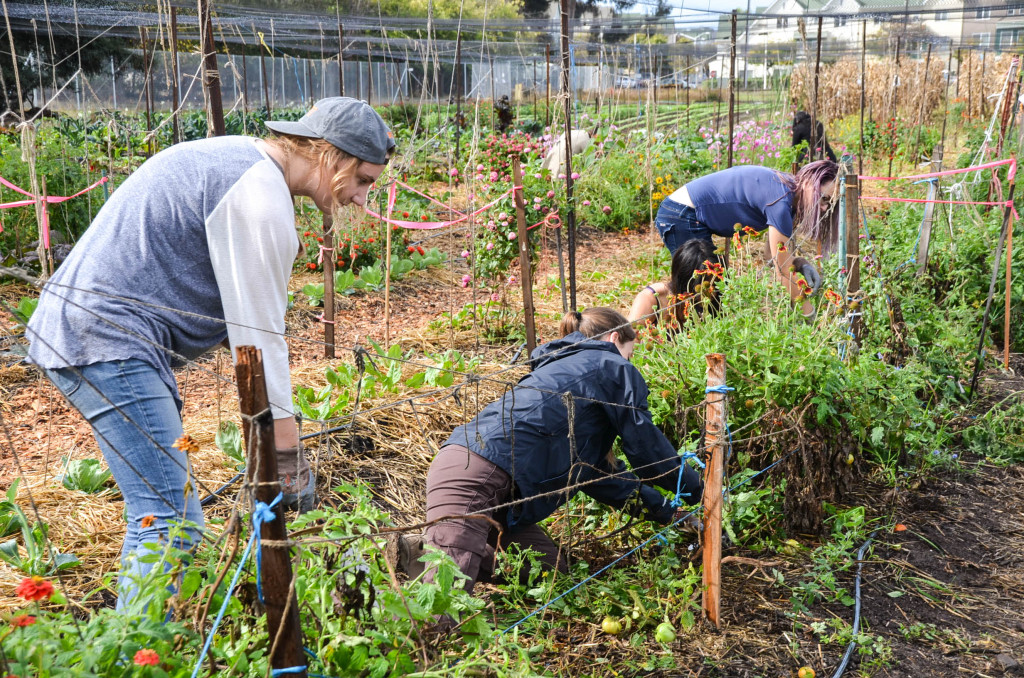
Photo courtesy of UC Berkeley Food Pantry
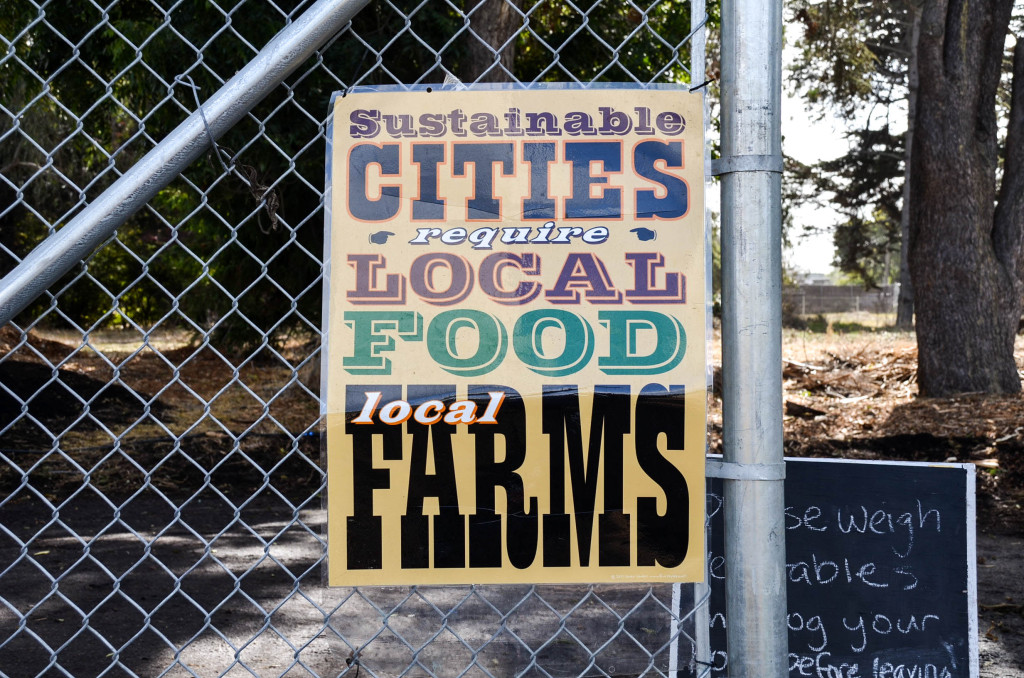
Photo courtesy of UC Berkeley Food Pantry
We are what we eat, and what we eat is inherently connected to and affected by all the different social, political and environmental sectors of the food movement. It is an important concept to keep in mind, especially when making decisions that impact both our diets and the diets of others in our local and global food chain.
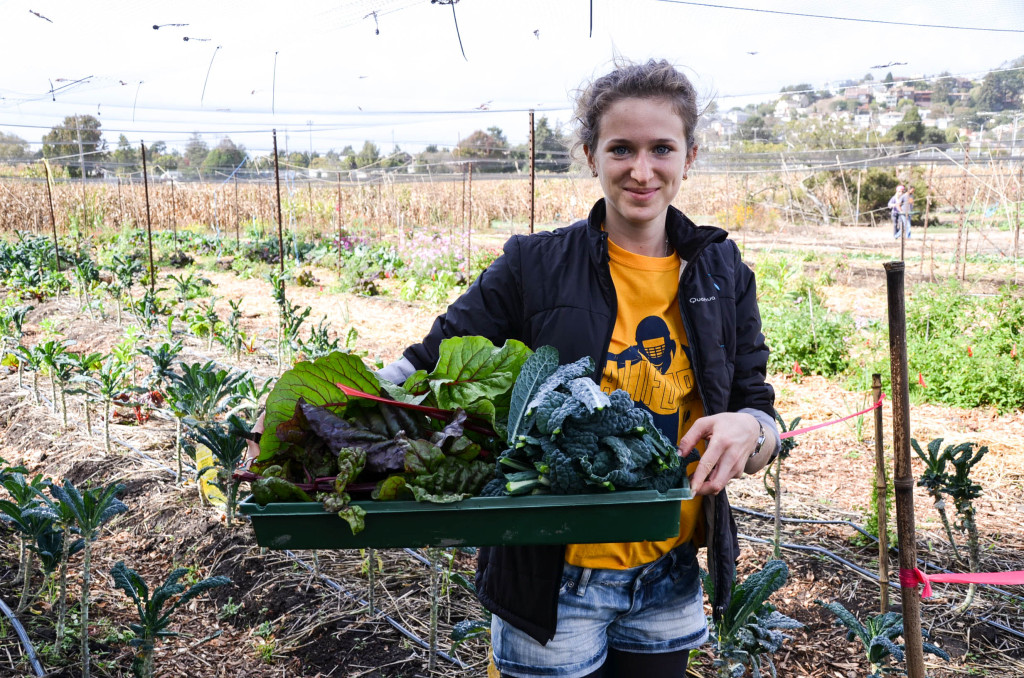
Photo courtesy of UC Berkeley Food Pantry

